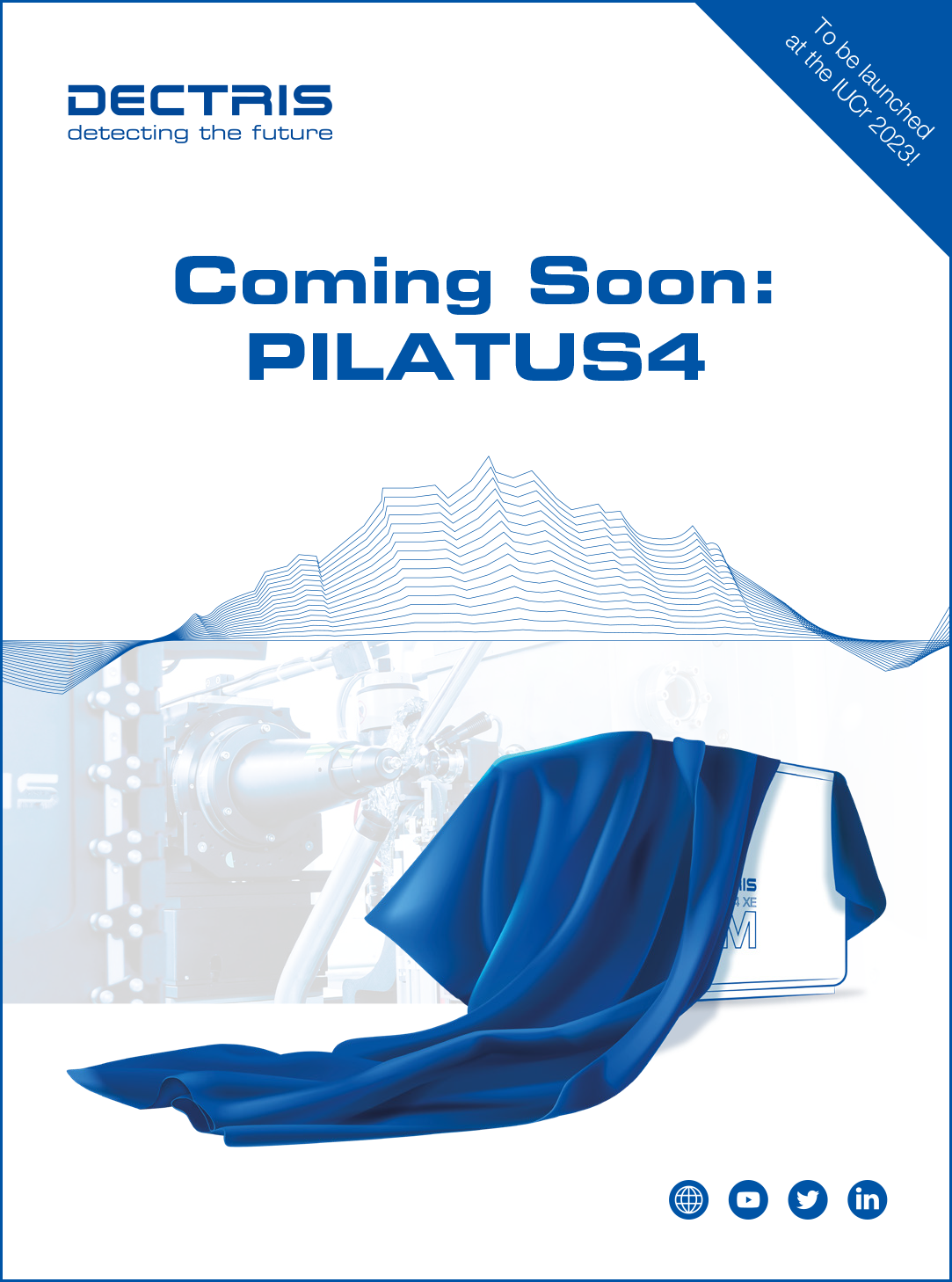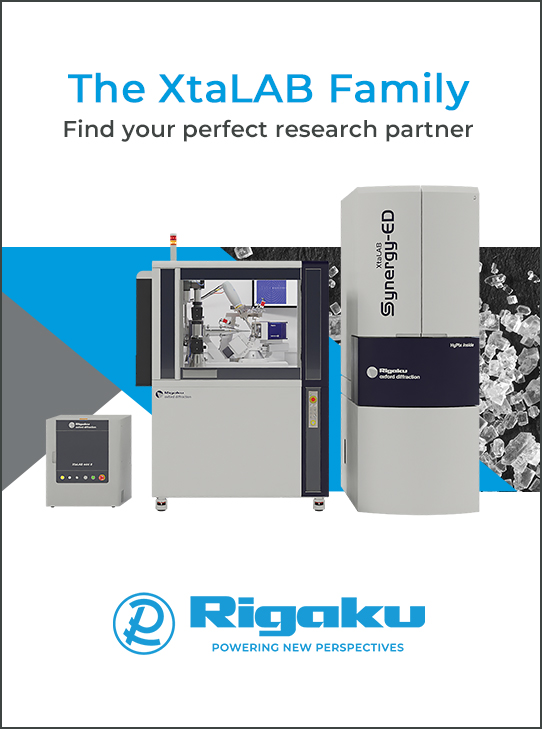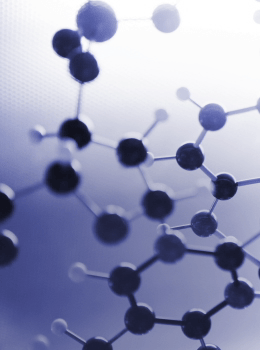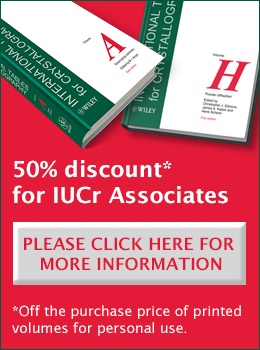


Crystallography in Africa
Appui à la formation et la recherche à travers les mesures à distance (AFRAMED): a recent and ambitious project for the development of crystallography in Africa
![thumbnail [thumbnail]](https://www.iucr.org/__data/assets/image/0017/156023/thumbnail.jpg)
Motivation for the AFRAMED project
Crystallography is a powerful science in helping to understand the world around us. It can determine the atomic-level structure of materials, and researchers use this knowledge to explain why things behave the way they do. This can be used to improve the properties of materials and contribute to developing new ones and drugs with improved properties. On the African continent, this science is in the early stages of development thanks to the IUCr Africa Initiative, the African Crystallographic Association (AfCA), UNESCO, ISC, CNRS and the national crystallography associations in South Africa, Algeria, Morocco, Tunisia, Cameroon, Congo Brazzaville and Senegal. One of the tools used to tackle the lack of equipment, which is the main factor responsible for the delay in the development of crystallography in particular and science in general on the continent, was the existence of OpenLabs. Different types of OpenLabs exist: OpenLab type I, OpenLab type II, the Travelling Lab and the OpenFactory.
The OpenFactory took place in Grenoble (France) and Darmstadt (Germany); type I and II OpenLabs were held in Senegal, Cameroon, Tunisia, Algeria, Morocco, Benin, Ghana, Côte d’Ivoire, Gabon, Congo Brazzaville, Mauritania and Kenya. The details of these four types of OpenLabs are given on the IUCr website.
With the COVID-19 pandemic, it was no longer possible to organize these OpenLabs and continue to train our African colleagues on the African continent. The idea to use diffractometers remotely was proposed, and the CNRS IRN (International Research Network) “AFRAMED” project was launched by the chair of the IUCr Africa Initiative, Professor Claude Lecomte, and his team in Nancy (France).
The launch ceremony of AFRAMED
![[Figure1]](https://www.iucr.org/__data/assets/image/0018/156024/figure1.jpg) Inauguration of AFRAMED at the Faculté des Sciences et Technologie, Université de Lorraine (Nancy, France).
Inauguration of AFRAMED at the Faculté des Sciences et Technologie, Université de Lorraine (Nancy, France).
AFRAMED (Appui à la Formation et la Recherche en Afrique par des Mesures à Distance) is a project financed for five years (2022–2026) by the Centre National de la Recherche Scientifique (CNRS). It aims to help African researchers and university teachers whose field of research depends on crystallography – chemists, physicists, geologists and biologists – to carry out diffraction experiments from their home laboratories using a French diffractometer remotely for research or teaching activities. During the five years of the project, at least three representatives from different African countries, who hold permanent positions in their universities, will be trained in the laboratories of the French partners of the project for at least one month. Then these representatives will connect to the diffractometer remotely for about 100 hours per year from their respective countries. This time is used for X-ray diffraction measurements of new crystals and for the training of students and other interested permanent lecturers. At the end of the project, at least 15 national representatives in Africa will be trained and at least 15 African countries will be involved in the project. The project was launched on 31 August 2022 in the Conference room of the Faculté des sciences of Université de Lorraine with three CNRS French laboratories (CRM2 Nancy, LCC Toulouse and Institut Européen de Chimie et Biologie Bordeaux) and six African countries (Cameroon, Gabon, Egypt, Togo, Cote d’Ivoire and Senegal) in the presence of many personalities: Professor Alain Schuhl, CNRS science director (Directeur general délégué à la science); Professor Christelle Roy, CNRS Director of Europe and international affairs; Dr Edwige Elmer-Laurent, Regional CNRS delegate; Dr Helene Boulanger, President of the University de Lorraine; Professor Karl Tombre, Vice President in charge of international cooperation; Professor Amal Kasry, head of Capacity Building at UNESCO; and Professor Delia Haynes, President of AfCA.
![[Figure2]](https://www.iucr.org/__data/assets/image/0019/156025/figure2.jpg) Professor Claude Lecomte officially launching the AFRAMED project.
Professor Claude Lecomte officially launching the AFRAMED project.
The AFRAMED project objectives are that, after training in the French laboratories, all 15 applicants can independently perform X-ray diffraction measurements. For this purpose, African national representatives are trained in the host laboratory in selecting crystals, mounting and centering them, collecting and reducing data, and then solving the crystal structures. After the training, the applicants are able to perform their own diffraction experiments in the French laboratory remotely; the crystalline samples studied (sent previously to the French laboratory partner of AFRAMED) are centered on the goniometer by a researcher in the French laboratory who allows the applicants to remotely operate the diffractometer. Cameras installed around the diffractometer provide visual feedback of the experiment to the distant operator; such remote experiments allow applicants to perform their experiment in precisely the same way as if they had a diffractometer in their own laboratory. It also offers a new way to teach experimental sciences as the students are able to manipulate a large instrument (in this case a diffractometer) for the first time in their university study course, under the supervision of their professor. For the first year of the project, four representatives from Cameroon, Egypt, Gabon and Togo attended the training session on the PMD2X Bruker D8 Venture diffractometer at the CRM2 laboratory in Nancy (UMR CNRS 7036/Université de Lorraine).
![[Figure3]](https://www.iucr.org/__data/assets/image/0020/156026/figure3.jpg) Photo of the Bruker D8 Venture diffractometer (equipped with two cameras) used at PMD2X-CRM2 for the remote measurements in the framework of the AFRAMED project.
Photo of the Bruker D8 Venture diffractometer (equipped with two cameras) used at PMD2X-CRM2 for the remote measurements in the framework of the AFRAMED project.
The 2022 AFRAMED training
The 2022 training session of AFRAMED took place on 1–30 September 2022, and started with the welcome inauguration presentations of the applicants (Dr Seham K. Abdel-Aal, Egypt; Dr Patrice Kenfack Tsobnang, Cameroon; Dr Adam Bouraima, Gabon; and Dr Ayi Djifa Hounsi, Togo). The African researchers’ scientific backgrounds were crystallography, inorganic and coordination chemistry, and materials sciences for various applications (energy storage, conversion of solar energy to electricity, gas sorption, removal of pollutants with clay material etc.).
![[Figure4]](https://www.iucr.org/__data/assets/image/0003/156027/figure4.jpg) Photos taken during the 2022 training session at CRM2.
Photos taken during the 2022 training session at CRM2.
First, applicants were trained to select suitable single crystals (size, shape, quality) and to mount them on the sample holder (a loop). They then learned to center the crystal and to use the Bruker APEX4 program. Data reduction was also taught by Dr Emmanuel Wenger and Dr El-Eulmi Bendeif (who are in charge of the CRM2 diffractometers).
![[Figure5]](https://www.iucr.org/__data/assets/image/0004/156028/figure5.jpg) Left to right: Ayi Djifa Hounsi (Togo), Patrice Kenfack Tsobnang (Cameroon), El-Eulmi Bendeif (France), Emmanuel Wenger (France), Seham K. Abdel-Aal (Egypt) and Adam Bouraima (Gabon) at the 2022 AFRAMED training session.
Left to right: Ayi Djifa Hounsi (Togo), Patrice Kenfack Tsobnang (Cameroon), El-Eulmi Bendeif (France), Emmanuel Wenger (France), Seham K. Abdel-Aal (Egypt) and Adam Bouraima (Gabon) at the 2022 AFRAMED training session.
Single crystals of sucrose, paracetamol, sodium chloride and sodium nitroprussate were measured during the session, starting from selecting suitable single crystals; mounting them on the loop; centering; then screening, collecting and reducing the data; and finally solving and refining the crystal structure using the Olex2 program. During the training, the African researchers also attended lectures on the basics of crystallography. The principles behind structure resolution and refinement, electron-density modeling, analysis of intermolecular contacts using Hirshfeld surface analysis, and contact enrichment ratio descriptors were covered. Lectures on software used for structure interpretation at the atomic and subatomic levels, with emphasis on Olex2 and MoPro etc., were given by Professor Claude Lecomte, Professor Christian Jelsch, Dr Emmanuel Wenger and Dr El-Eulmi Bendeif.
In the last stage of the training, the software for remote measurements was installed on the computers of the four African participants, which they successfully used to measure diffraction data remotely from the African crystals.
![[Figure6]](https://www.iucr.org/__data/assets/image/0005/156029/figure6.jpg) The first remote experiment in the CRM2 laboratory located above the diffractometer room.
The first remote experiment in the CRM2 laboratory located above the diffractometer room.
During the closing ceremony, certificates were given to the four African researchers who attended this 2022 session, and an evaluation meeting was organized between the four applicants and the teaching staff of the AFRAMED project.
![[Figure7]](https://www.iucr.org/__data/assets/image/0015/156030/figure7.jpg) Photo of the trainees showing their certificates during the 2022 training session of AFRAMED, with Emmanuel Wenger and Claude Lecomte in the fourth and fifth position from left to right.
Photo of the trainees showing their certificates during the 2022 training session of AFRAMED, with Emmanuel Wenger and Claude Lecomte in the fourth and fifth position from left to right.
Some points were raised during this discussion to facilitate and improve the 2023 training sessions. These points were related to the period of the year in which to run the training, the involvement of UNESCO in the project and the increase in the time allocated to each country involved in AFRAMED. Requests have also been made to consider other instruments in the project.
Copyright © - All Rights Reserved - International Union of Crystallography







